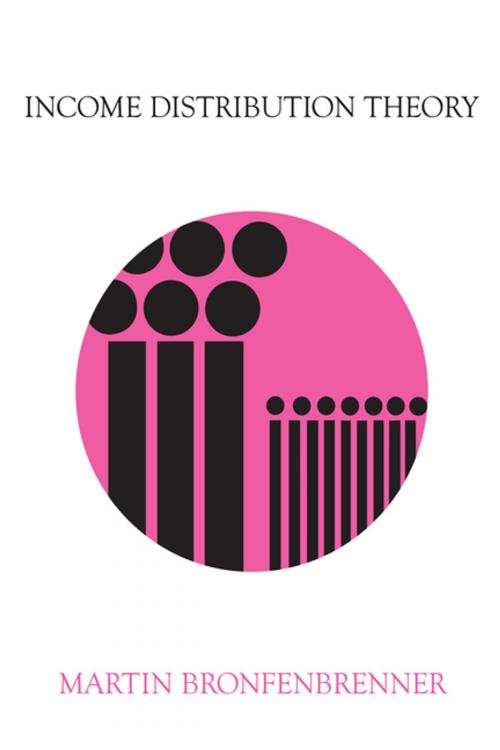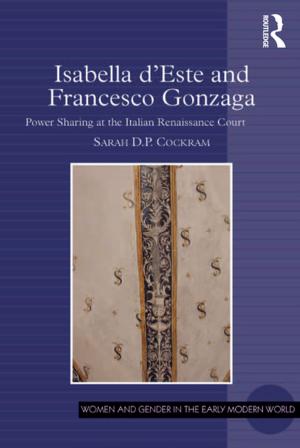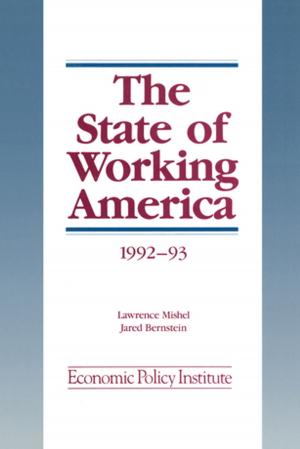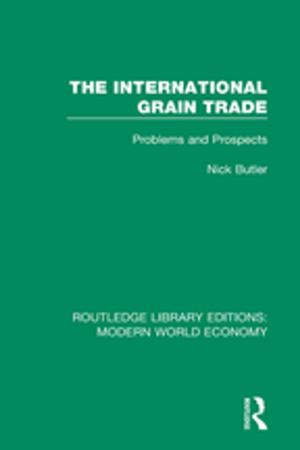| Author: | Martin Bronfenbrenner | ISBN: | 9781351512824 |
| Publisher: | Taylor and Francis | Publication: | September 5, 2017 |
| Imprint: | Routledge | Language: | English |
| Author: | Martin Bronfenbrenner |
| ISBN: | 9781351512824 |
| Publisher: | Taylor and Francis |
| Publication: | September 5, 2017 |
| Imprint: | Routledge |
| Language: | English |
This is a well-grounded restatement, defense, and development of the theory of income distribution in both its micro- and macroeconomic aspects. The author, an authority in the field who has spent many years developing the ideas in this book, balances neoclassical theories with Keynesian and ""radical"" approaches. He considers income distribution theory in terms of ideology, statistics, micro- and macroeconomics, income policies, and the poverty problem. The result is a distinctive and comprehensive treatment of a subject that has polarized many economists over many decades. Bronfenbrenner reacts against conventional theories that concentrate on output markets, virtually ignoring input prices. He also opposes the brand of institutionalism that regards ""democratic business unionism"" as an American institution that can do no wrong. Overall, Bronfenbrenner presents an eclectic defense of a ""traditional"" theory of economics that has been under attack from rival viewpoints with insufficient rebuttal, and that proves to be a powerful tool of analysis in dealing with this subject. The book is organized into three main parts: an ideological and statistical personal introduction to income distribution, microeconomic distribution theory, and macroeconomic distribution theory. A final chapter considers incomes policies, with a rather skeptical view of the prospects for political control of income distribution within a basically free economy. The manuscript has been widely used and class tested over the past thirty-five years. The book will be useful to professional economists. It may be used as a basic text in courses on income distribution and as a supplementary text in microeconomic theory.
This is a well-grounded restatement, defense, and development of the theory of income distribution in both its micro- and macroeconomic aspects. The author, an authority in the field who has spent many years developing the ideas in this book, balances neoclassical theories with Keynesian and ""radical"" approaches. He considers income distribution theory in terms of ideology, statistics, micro- and macroeconomics, income policies, and the poverty problem. The result is a distinctive and comprehensive treatment of a subject that has polarized many economists over many decades. Bronfenbrenner reacts against conventional theories that concentrate on output markets, virtually ignoring input prices. He also opposes the brand of institutionalism that regards ""democratic business unionism"" as an American institution that can do no wrong. Overall, Bronfenbrenner presents an eclectic defense of a ""traditional"" theory of economics that has been under attack from rival viewpoints with insufficient rebuttal, and that proves to be a powerful tool of analysis in dealing with this subject. The book is organized into three main parts: an ideological and statistical personal introduction to income distribution, microeconomic distribution theory, and macroeconomic distribution theory. A final chapter considers incomes policies, with a rather skeptical view of the prospects for political control of income distribution within a basically free economy. The manuscript has been widely used and class tested over the past thirty-five years. The book will be useful to professional economists. It may be used as a basic text in courses on income distribution and as a supplementary text in microeconomic theory.















